Early drafts of research writing can sometimes be fragmented. There is good content there, but it reads more like a random list, and less like a careful selection of ideas that are developed and clearly connected to one another.
Example: Fragmented content in writing
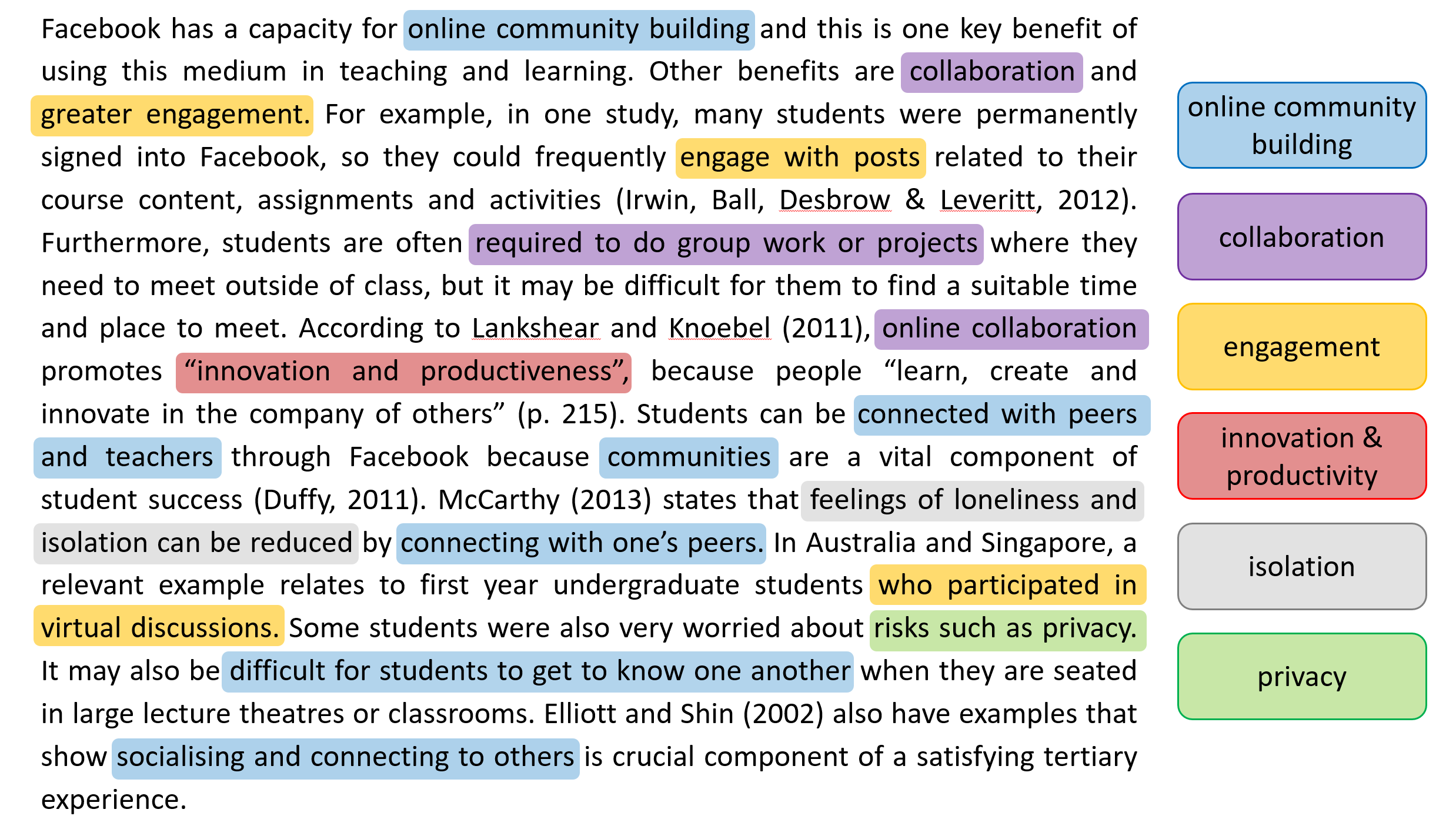
Above, the writer is bringing in lots of different ideas without clearly developing any of them in detail. For example, online community building is at the start, in the middle, and at the end again, but, in between, there are many other undeveloped points. Fragmented writing can happen when writers do not yet have a plan for organising content.
Video (3.58)
Strategies for organising your ideas and creating clear structure.
Grouping research findings
One common strategy for organising and connecting ideas is to precisely group research findings around a reoccurring concept or area of research (often called a ‘theme’).
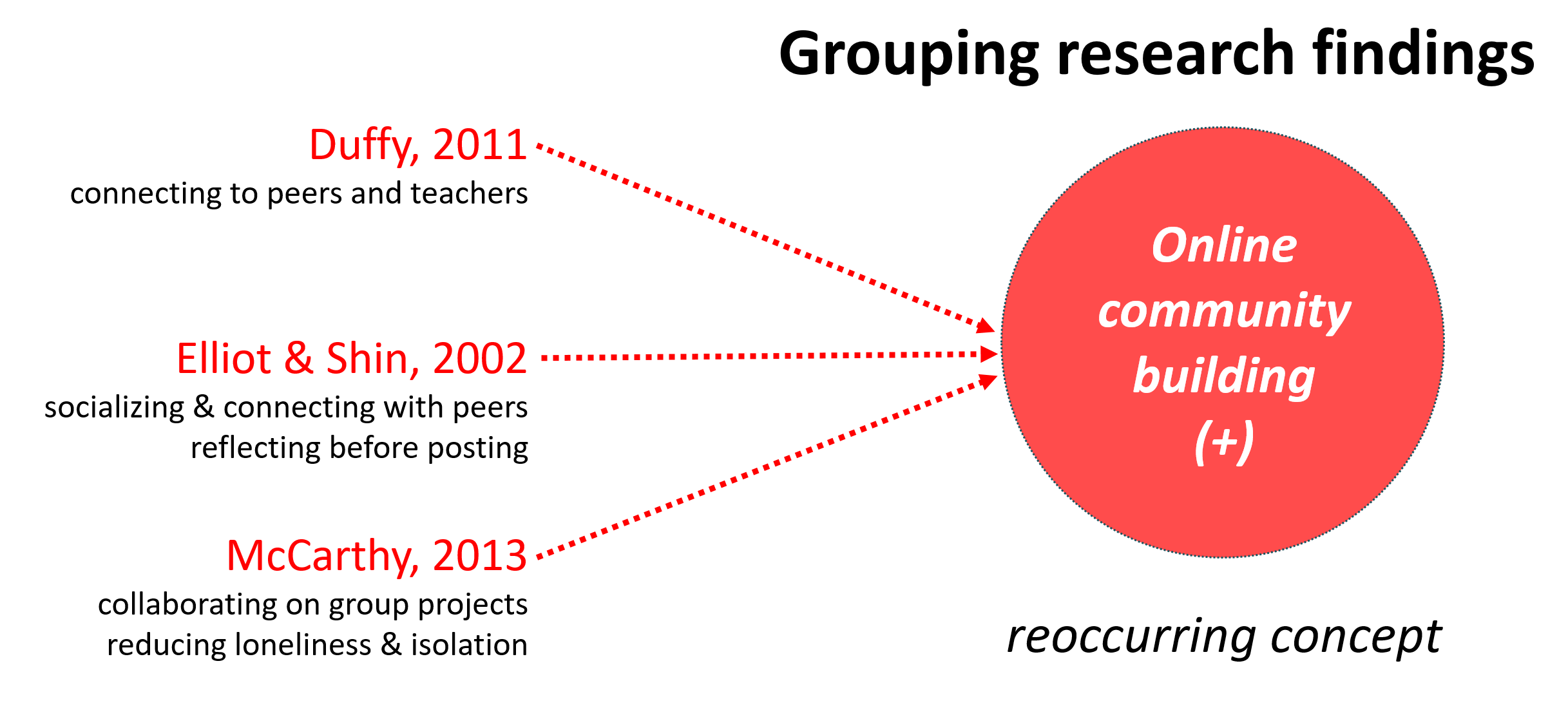
With this kind of synthesis, specific research findings are connected to a broader, more general category. So even though research studies may have highly specific, wide-ranging, or contrasting findings, you can plan how different research studies relate.
Organising concepts & details from literature
As you read more, you can create a map of more general to more specific concepts, and match research studies to these areas.
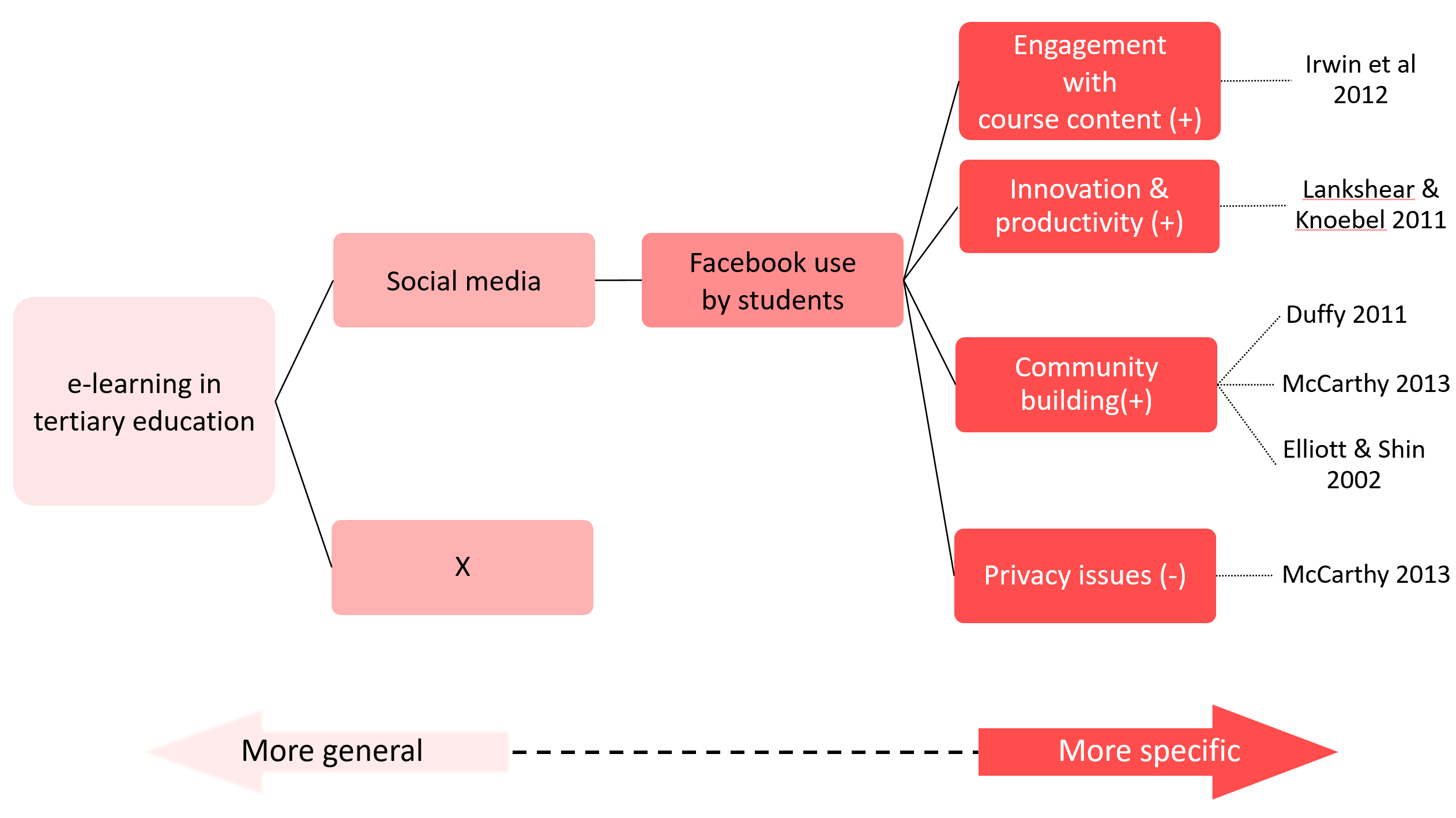
Mapping concepts helps you select content that you can use to form distinctive paragraphs or sections.
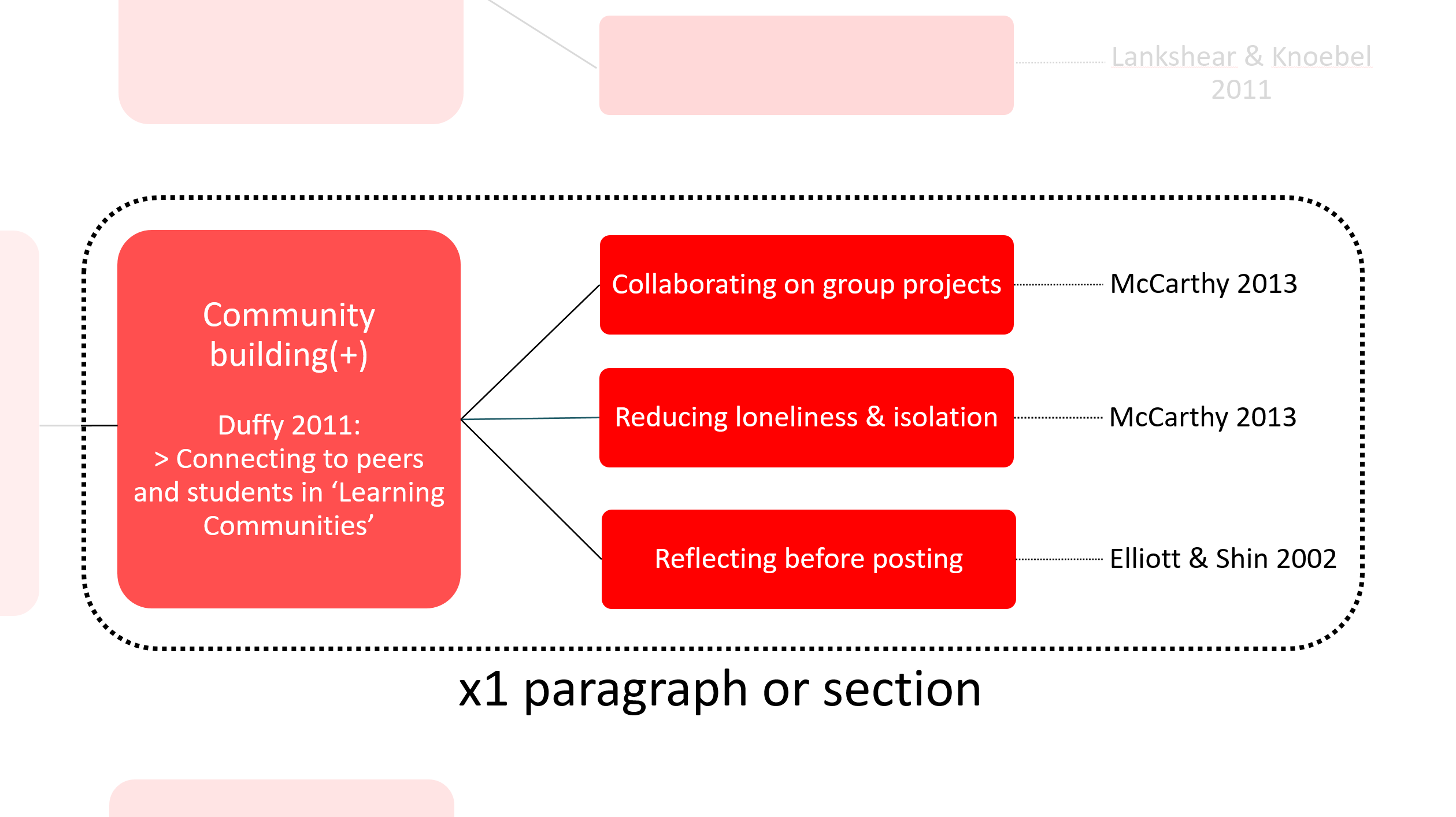
Example: Organised writing
You can use your organisation of concepts as your ‘road map’ for writing. Paragraphs often start with a general concept. You can then introduce the details and connect these back to the more general concept. Your reader now knows what the details are about, and they can clearly follow your main argument.
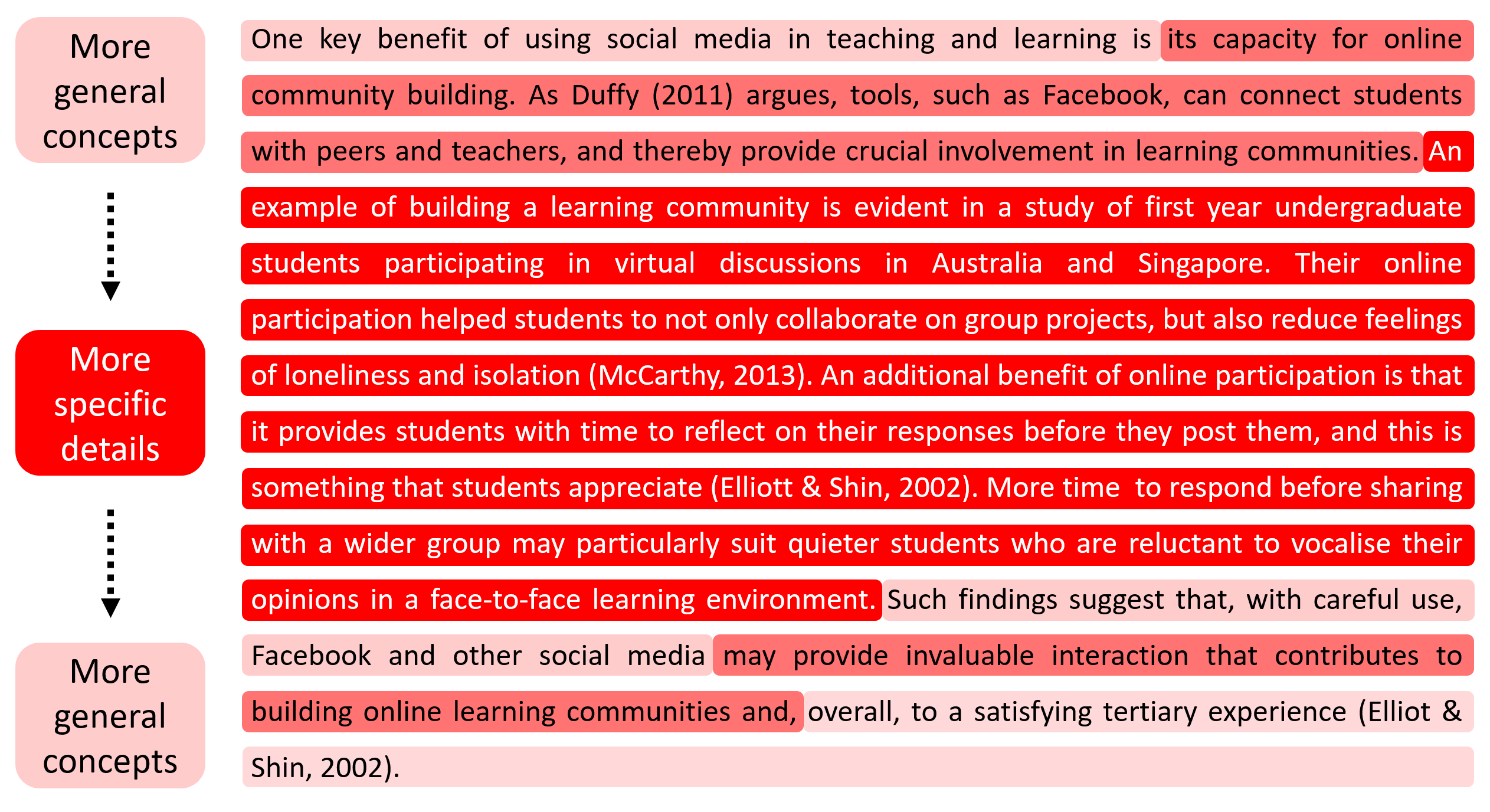
Language to clearly show your organisation
The mapping of concepts also helps you to choose language that shows your reader when you shift from one concept to another, or start to bring in specific details and examples.
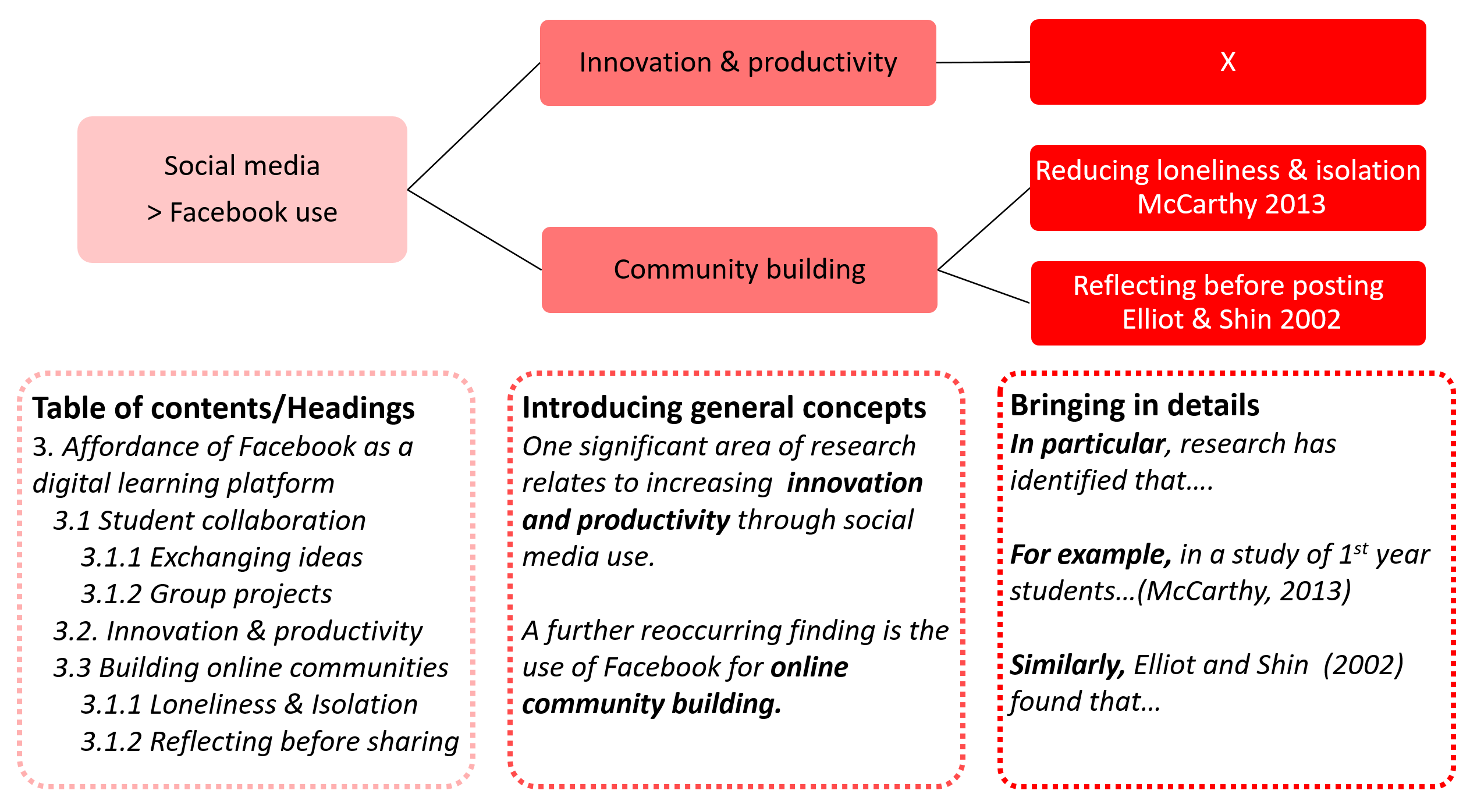
Sentence starters
Academic Phrasebank from the University of Manchester
More videos about research writing
AUT literacy for assessments YouTube channel
More from AUT’s Graduate Research School
Online resources
References
From teaching materials (example texts)





